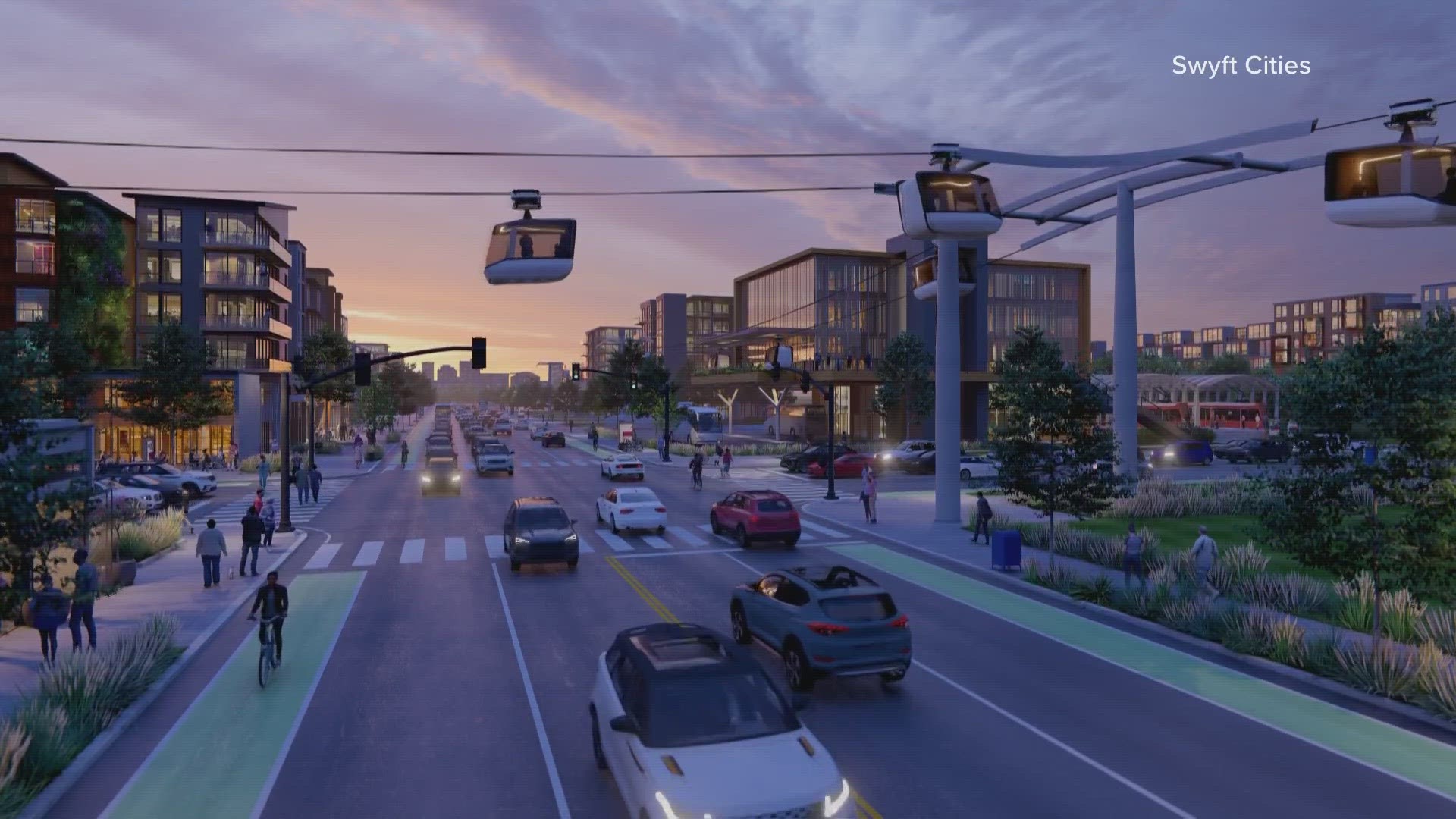PLANO, Texas — The Regional Transportation Council for North Texas invited cities to apply for high-tech gondolas to help with congested traffic areas, and Plano is the first North Texas city to throw their hat in that ring.
Plano City Councilmembers discussed and approved moving forward with an application for the gondolas, developed by Swyft Cities, a company started by former Google employees who designed the gondolas while working there.
The company says its advanced gondola system provides efficient, comfortable and sustainable mobility and helps reduce costs for places like real estate developments, universities and airports.
Brian Shewski, Plano's transportation engineering manager, said each gondola would carry about four people, and rides could be scheduled and paid for using a smartphone app.
There are no financial commitments made for the project at this time, which would just be beginning its planning phase for the city upon submitting the application.
Plano Place 3 City Councilmember Rick Grady said two major things the city found most beneficial, was that the funding for the project is already there, as a private equity company is funding the project, and that Swyft Cities has already built two of these gondola systems before.
"It's something that they've already experienced and we're not the first out of the chute," Grady said at the meeting. "I felt this looked like a very plausible solution."
Place 2 Councilman Anthony Ricciardelli said he was absolutely in favor of submitting the application.
"It's a great deal to get in on the front end of something that, if it does work out, could really help traffic in the city," he said.
Ricciardelli had some questions regarding safety, but Shewski said he had already talked with Swyft Cities and said they use facial recognition on each individual gondola to act as a deterrent.
Grady compared the gondolas to uber vehicles, except without a driver.
"If you decide you want to be the only occupant in this, you're the only occupant," Grady said.
These vehicles are self-propelled, unlike traditional gondolas, with advanced guidance systems, which the company says leads to faster trips.
The company says their gondolas combine an autonomous cabin with lightweight, fixed cable infrastructures that moves passengers at a lower cost and with fewer carbon emissions than traditional transportation alternatives.
Gondola stations are about the size of traditional bus stops, the Swyft Cities website says, which can be either on the ground, elevated, or built alongside upper levels of a building. Cabins wait for passengers and immediately begin traveling along fixed cable guideways.
The cabins can navigate through turns, serve a number of routes and bypass stops.

